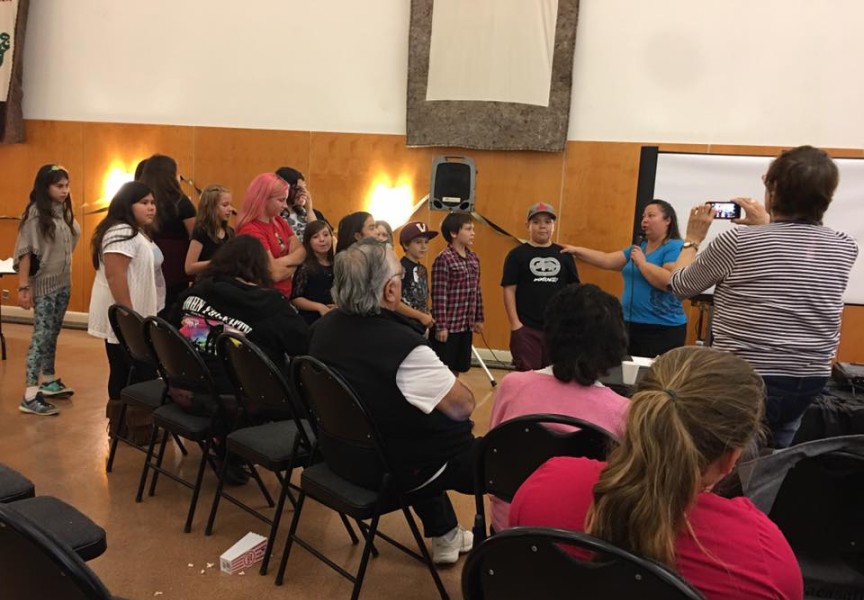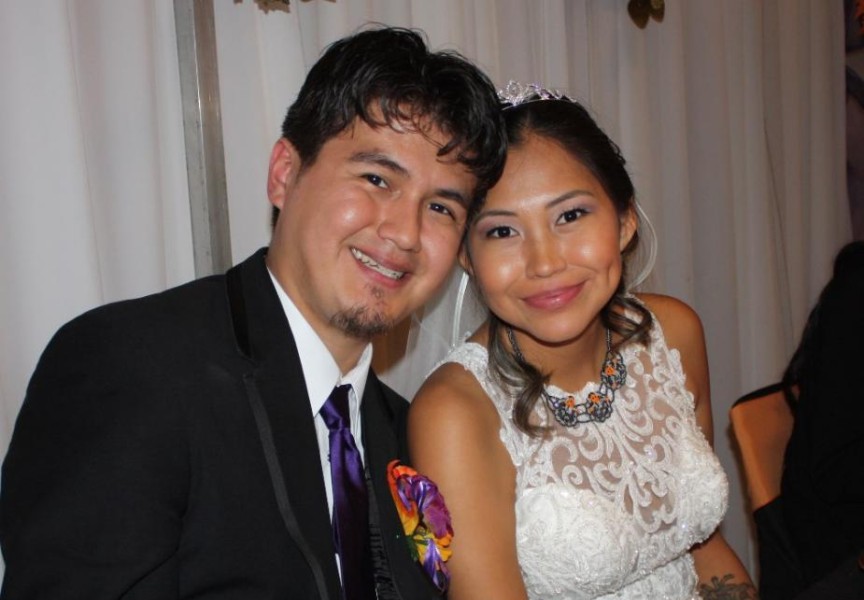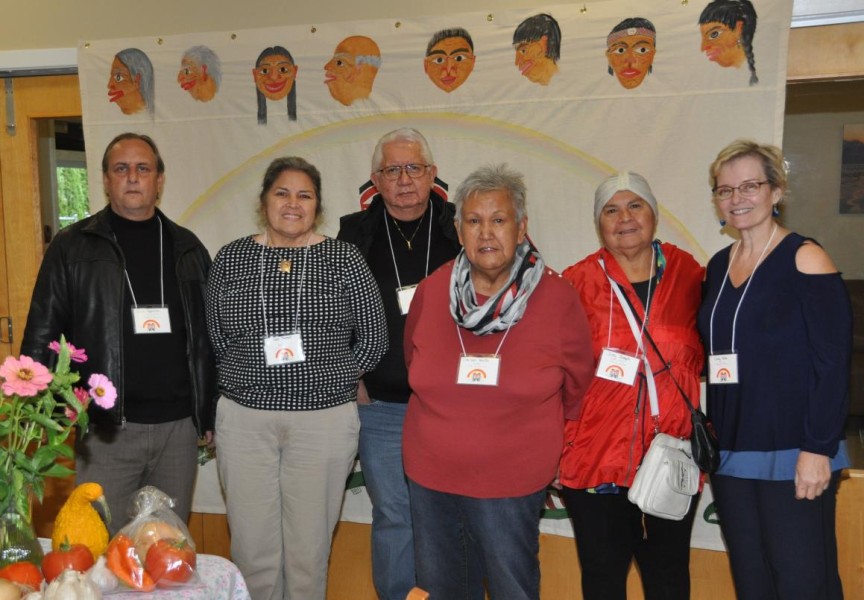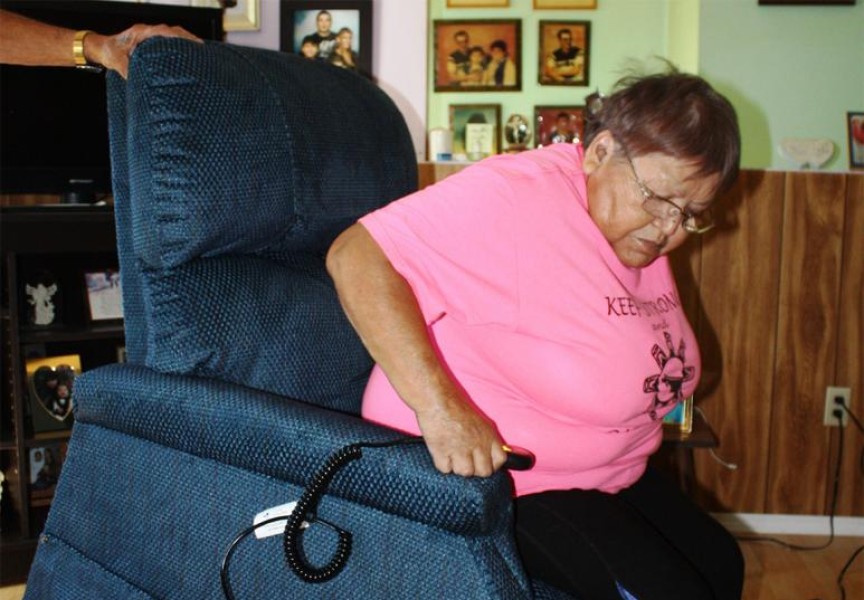When Randy Ginger had to make a career switch, he banked on a host of administrative skills he didn't even know he had.
Ginger works as the Non-Insured Health Benefits clerk in the Nuu-chah-nulth Tribal Council’s Health Promotion & Social Development department. The NIHB program, through the First Nations Health Authority, covers costs for Nuu-chah-nulth members in a wide range of areas. NIHB programs include Medical Equipment and Supplies, Care Card, Prescription Drugs, Dental, Non-insured Mental Health Crisis Counselling (NIMHCC), Medical Patient Travel, and Optical. NTC administers the Optical program for Nuu-chah-nulth members, as well as NIHMH Crisis Counselling. Medical Patient travel is administered by the Nuu-chah-nulth communities.
Each service provider creates a paper trail for each transaction. Ginger's job is to ensure that all of the necessary bureaucratic steps have been followed so that each client is properly reimbursed.
“I work with the First Nation medical travel clerks, the liaison workers, and the frontline workers. I collect the forms and paperwork from the medical travel clerks.... I prepare and make sure the data is coherent to policy,” he explained.
Making the task more painstaking is the fact that each service involves different policies and protocols. Some are administered provincially and some federally, and some service providers, such as vision care, operate nation-wide.
“A lot of work with First Nation medical travel clerks is very unique; each individual call is a different scenario, and it is case-by-case within NIHB.”
All of the policies are spelled out within the 2005 Medical Transportation Framework Guide Book.
Part of Ginger's duties involves processing paperwork for the Non-Insured Mental Health Crisis Counselling (NIMHCC). For Nuu-chah-nulth clients residing away from their home community, they can contact Randy to access NIMHCC. Ginger maintains a roster of therapists and clinicians across the province. Clients living off-reserve are directed to the closest available service provider. He also assists with ensuring all documents are fully completed.
“Sometimes, a client doesn’t have proper ID, and it is tough to get the basics, however we work with providers to obtain information, and the client will be able to access their first three counselling sessions.”
For those living in remote communities, NTC has services available through the Teechuktl Mental Health department.
Ginger, the son of Florence Wylie and Randy Ginger Sr., has roots in Tseshaht, Huu-ay-aht, Hesquiaht, Uchucklesaht, and Mowachaht Nations.
“I was born and raised in Victoria and I have two younger brothers, Roland and Trevor,” he said. “We all finished our schooling and went to college. From Grade 9 on, I had actually started in culinary [training], and I graduated from Vancouver Island University and worked in the field for seven years.”
Ginger worked in a series of fine-dining establishments in Victoria, earning a solid reputation as a “cold kitchen” specialist, preparing salads, hors d'œuvres, appetizers and all the treats that go along with the hot entrees.
“But my culinary career came to an end after seven years because I began to develop allergies.”
After extensive testing, it was determined that Ginger had developed environmental allergies, most specifically to the nickel and stainless steel tools and equipment he was surrounded by. The discomfort became progressively worse, until he realized he could no longer work in a commercial kitchen.
That meant going into a retraining program through the federal Employment Insurance program and finding an alternative career path.
“I started to look at the skills I had already gained growing up doing volunteer work with Mom,” he said.
Wylie previously worked as the Provincial Coordinator with the BC Association of Indian Friendship Centres and co-founded the B.C. Aboriginal Network on Disability Society, a Victoria-based advocacy group with province-wide outreach focused on improving the quality of life for aboriginal people living with a disability.
Ginger said he and his brothers were regularly recruited to help with workshops, conferences, office work, and travelled to various parts of BC with their mother. Without knowing it, they were learning empathy and compassion for others, and were involved with something that was helpful for other people who were often dealing with difficult health situations.
“Over a few short years, the provincial newsletter for BCANDS mail-out list went from about 150 to over 2, 000,” Ginger said. “We had the opportunity to meet a lot of First Nations political leaders, both federal and provincial leaders, and community members from all over BC. We learned a lot from these experiences.”
Fifteen years ago, Ginger relocated to Port Alberni to be closer to family and eventually began to study Business Administration at North Island College. However, his plan and his career path took a side-trip.
“The program director called me in and suggested I pursue more work experience in the financial field. He thought it would be beneficial,” Ginger said.
He was successful in attaining employment as a Customer Service Representative at the Tsahaheh Branch of the Bank of Montreal, where he trained under Branch Manager Denise Martineau. Over the next three years, he learned the full range of skills and also worked at the BMO Third Avenue Branch and in Qualicum.
But with limited opportunities on the horizon in the banking field, Ginger opted to take on his current role at NTC in October 2012.
Off work, Ginger stays active with running and basketball, and is proud of his Nuu-chah-nulth ancestry. Fortunately, he said, his family connections are strong.
“When I was growing up, my Mom would make sure that she took us to visit our grandparents in Port Alberni and Seattle, so that we were able to understand where we came from and who our families were. She also took us along with her to attend NTC AGMs and events in Nuu-chah-nulth territory as we were growing up, ensuring that we knew who the people were and introducing us to the elders.”
The greatest single influence was his grandmother, the late Susan Ginger, who had lived in Seattle for decades. She had moved to Seattle after the passing of her late husband, Johnson Ginger (Uchucklesaht).
“From my early years, I was able to visit my grandmother and learn about my family history.”
But Susan didn't make it easy, he said. She was fully fluent in the traditional, working form of Nuu-chah-nulth referred to as “Nootka.”
“The first 20 minutes or so, she spoke only Nootka, to see if my Mom and I understood the language,” he recalled. “I used to sit there with a notebook and pen in my hand, but she told me, ‘No pen or paper - listen and learn.’”
Ginger said even at the time he realized every visit was important. During each visit, Susan would share stories about life in the villages and about the family.
“At first we thought they were just stories, but we found out they were true,” he said. “You can read things in books, but it’s not the same. Some of the things we were learning were never in books; they were just passed down from generations.”
Ginger said he continues to learn some of it from books, but much of it from elders.
“The community members have shared stories with me because they grew up with Susan. That's how they always start out.”
Improving his Nuu-chah-nulth language skills is ongoing, he said.
“When I was at BMO, I learned 'one,' 'two,' 'five' and '20,' just so I could count it out for the elders. I'd go 'utlah, utlah, utlah' - 'two, two, two.'”
Looking back, it may have been a bit silly, said Ginger. But every once in a while, one of those elders would brighten up and exclaim, “You said it in Nuu-chah-nulth!” Those moments have reinforced his drive to keep learning, he said.






